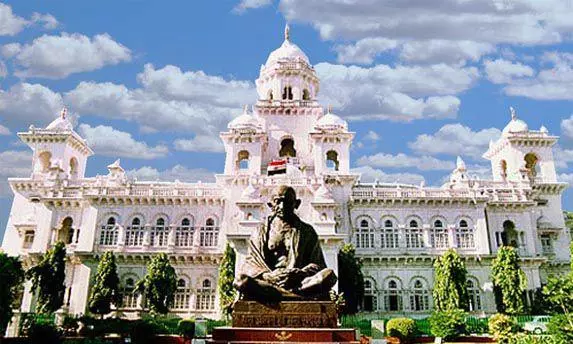Janabai from Tamsi mandal of Adilabad district didn’t receive her pension for the past four years. Every time she approached the authorities with the grievance, they found her in the category of ‘Permanently Migrated’.
After renewal, the next time she checked, her account would still remain empty. After making rounds of the government offices thrice, she gave up.
A pilot project conducted in Adilabad district towards decentralisation of ‘Prajavani’ grievance redressal programme could isolate and solve Janabai’s issue. The issue now stands resolved with intervention from SERP.
The pilot project, conducted with the initiative of nodal officer Divya Devarajan and with collaborative efforts of the Adilabad district administration and close to 60 civil society organisations, has many such success stories during the two-month implementation period.
A report presented to the Chief Minister A. Revanth Reddy on Monday holds the promise of replication across the State.
As per the latest data, the pilot project received a total of 3,964 grievances within two months, through 16 information facilitation centres (IFCs) established at the mandal level as part of the exercise. In comparison, only 5,821 grievances were filed in the centralised Prajavani programme from across the State, during the same period.
At the end of two month project, Action Taken Reports were filed with regard to 2,037 complaints, and interim replies were furnished for 140, clocking a success rate of more than 51%.
“We identified the problem areas beforehand and collected data from the departments concerned. For example, we collected the details of all deleted pensions and informed the respective IFCs so that the same was cross verified at public hearings conducted at the mandal level,” informed Sreeharsha Thaneeru, an activist from Social Accountability Forum for Action and Research (SAFAR).
Majority of the complaints pertained to the ‘Praja Palana’ applications. At 1,697, the highest number of grievances was about subsidy on cooking gas, while that related to crop loan waiver accounted for 674. Other complaints were about Gruhajyothi scheme, PM Kisan scheme, individual forest rights, land issues, pensions, MGNREGA, food security cards, National Family Benefit Scheme, Indiramma housing, drinking water, Rythu Bima, Kalyana Lakshmi and others.
Standard operating procedures were set, dated acknowledgement receipts were given for each grievance filed, and a total of 90 grievance redressal officers were appointed for all the departments with mandate to file ATRs within 30 days of grievance registration. One pivotal aspect of the pilot project was public hearings as interfaces for GROs and complainants to interact and for senior officials to learn of systemic issues. A total 32 mandal level public hearings were conducted during the two months, with every mandal covered twice.
PESA [Panchayats (Extension to Scheduled Areas) Act] coordinators, SSAAT (Society for Social Audit Accountability and Transparency) team members and civil society representatives were made responsible for outreach and mobilisation at the village level for filing grievances for those unable to come to the Mandal headquarters.
Over 60 civil society volunteers from Kisan Mitra, Center for Collective Development, Center for People’s Forestry, Digital Empower Foundation, Mazdoor Kisan Shakti Sangathan, Rhythu Swarajya Vedika, SAFA, SAFAR and other civil society organisations from across the country came to Adilabad and collaborated with the district administration to roll out the pilot project, a report about the pilot project noted, listing centralised filing process, no public access to the portal, lack of timelines and SOPs, limited citizen participation in redressal, lack of systemic sorting and absence of tracking mechanism for citizens as challenges with the centralised Prajavani programme.
Published – April 15, 2025 08:32 pm IST






